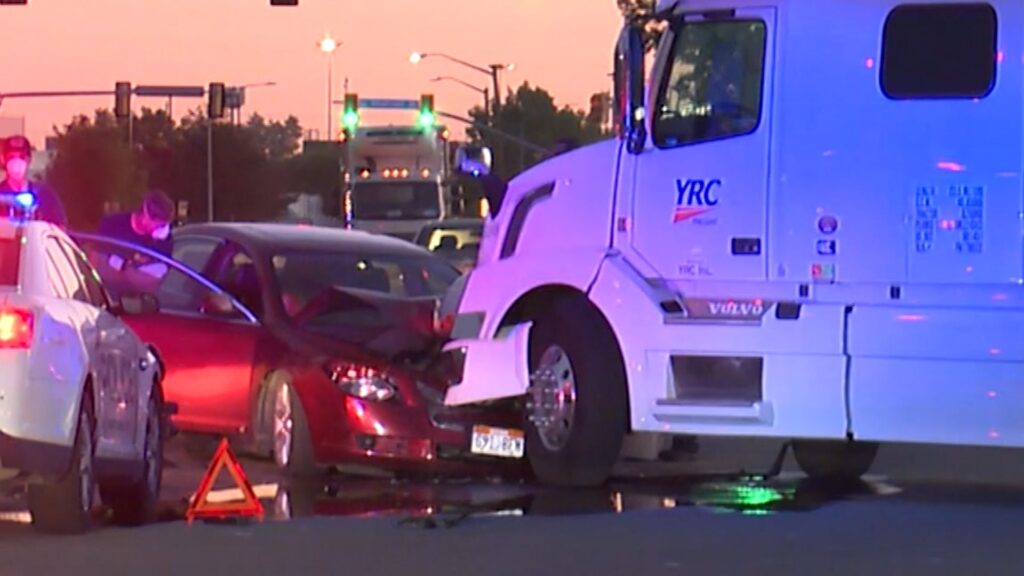
If you’re like many people, you might be preparing to go on a summer vacation. If so, there are a lot of things to be aware of this year. Some are exclusive to this particular summer. For example, what are the vaccine or testing requirements where you’re going?
Others are more general to traveling in general. Are you going to be on the roadways? If so, how can you be cautious and prepared for the risks that can bring?
Sharing the road with trucks is a huge risk factor in our daily lives. A fully loaded truck can weigh up to 80,000 pounds, while the average passenger vehicle weighs only around 3,000 to 4,000 pounds.
If a truck rolls over, you can imagine the devastating impact that can have.
The following are things to keep in mind about truck rollover accidents in particular as you prepare to travel this summer.
What Causes Rollovers?
There are a number of factors that can cause or contribute to truck rollovers. When you’re involved in a truck rollover accident, there’s a high likelihood of severe injuries or even death.
The design of the trucks highlights why this type of accident is relatively common.
Tractor-trailers, also called 18-wheelers, have a high center of gravity. That means they’re at more of an inherent risk of rolling over, especially if the load on the back is unstable.
These types of accidents most often occur from something called centrifugal force, meaning the truck leans away from the direction of a curve as it moves along a path. The faster a truck is going, the more centrifugal force that’s exerted against it, meaning a higher risk of an accident.
Beyond the design of the truck, there are other factors that tend to contribute to these accidents, including:
- Speed: When a trucker is going at a high rate of speed, it can be difficult to control the vehicle, especially as they’re coming to a sharp turn.
- Distraction or driver negligence: Many truck accidents are unfortunately because of the negligence or distracted behavior of the driver. Even just being slightly fatigued when behind the wheel can put a driver at risk of being involved in an accident.
- Road conditions: Weather or poor road maintenance are risky to all drivers but even more so to truck drivers. For example, if there’s a pothole in the road, a driver might steer too sharply, and that can cause a rolling accident.
- Cargo: If a driver’s cargo is poorly loaded, it can impede the truck’s balance.
- Maintenance: When a driver’s truck isn’t well-maintained, or a component isn’t working properly, it can impact the load and their driving ability, putting them at increased risk of rollover accidents.
Just How Common Are These Accidents?
According to the Federal Motor Carrier Safety Administration (FMCSA), which regulates interstate trucking in the U.S., in 2017 alone there were more than 17,000 rollover accidents reported. They described rollovers as the most harmful event in the accident.
In 2015, it was published in Claims Journal that rollovers represent a disproportionately high number of roadway fatalities.
The Risks of Truck Rollovers
If you’re sharing the road with a big truck and a rollover occurs, specific risks that can result include:
- Collisions between other vehicles and the truck. When a truck rolls over, it slides into another vehicle. It can also block the roadway so you can’t go past it.
- The truck driver can be hurt seriously. If the trailer only rolls, then the driver is less likely to be hurt, but when the cab flips, the impact can crush the compartment where the driver is, leading to extremely serious or deadly injuries for the trucker.
- If a truck is carrying dangerous, explosive, or flammable cargo, that can add another dimension to the risks of these accidents.
- Secondary collisions can occur even when a vehicle doesn’t hit the overturned truck itself. For example, a rollover can lead to what is called secondary accidents as cars try to swerve to avoid some element of the accident. It can also be distracting to other drivers, causing them to lose focus and then get into an accident.
So what can you do to avoid being part of a rollover accident?
While you can’t control what other drivers do, when you’re out and about this summer, be defensive in how you drive. This means that you’re always very aware of what’s going on, you avoid distractions, and you try to anticipate what’s going to happen on the road before it ever does.








